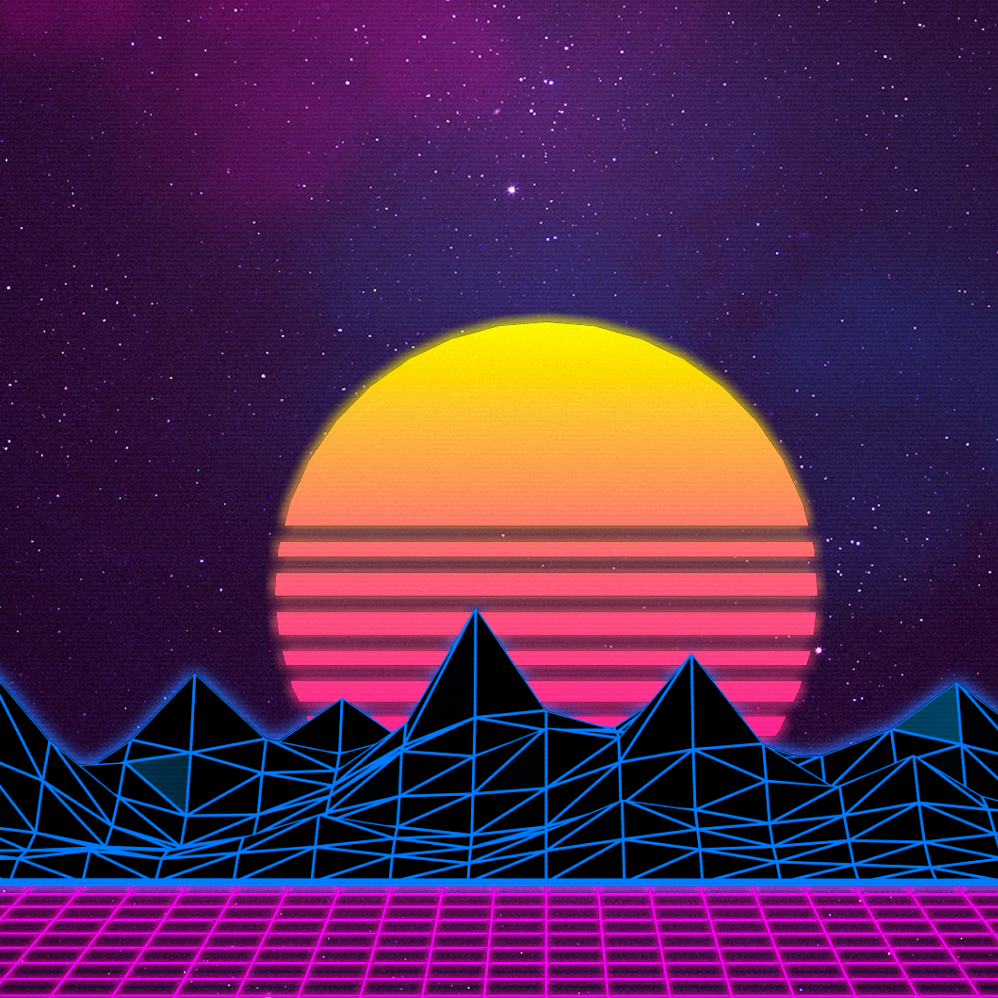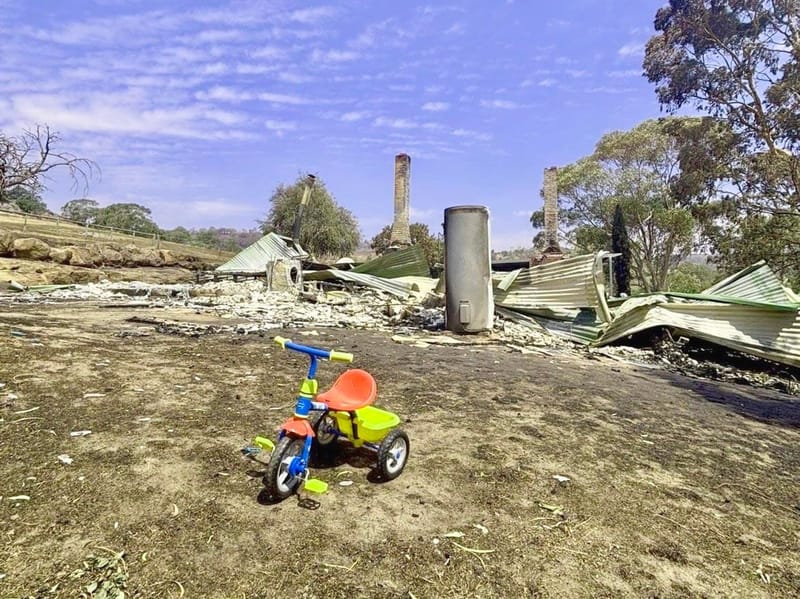Synthwave: the rebirth of retro
Synthwave is taking the online music world by storm. Reporter WILLIAM ARNOTT gives an insight into this rapidly growing genre both abroad and close to home.

By WILLIAM ARNOTT
Imagine you are driving through the lonely streets of a neon lit city on a rainy night. You slide a cassette tape into your radio and begin to play the perfect soundtrack for the scene.
It is a collage of 1980s culture called Synthwave and this grassroots DIY type of music is taking the internet by storm. The genre is both futuristic and nostalgic and its lyrics, if there are any, are often just quotes from ’80s movies.
Inspired by the classic soundtracks of movies like The Terminator, Halloween and Robocop, artists use modern synthesizers to create music packed with nostalgia. It is a new generation of producers following in the footsteps of major ’70s electronica artists and groups such as Giorgio Moroder, Tangerine Dream and John Carpenter.
One crowdfunding success was the film Kung Fury, whose soundtrack is full of synthwave.
The genre’s popularity first exploded when the 2011 film Drive starring Ryan Gosling incorporated the music in its soundtrack. Video games also started to dabble with the sound, whether it was inducing trances in the ultra-violent indie Hotline Miami or paying homage to the bygone era of VHS tapes, neon and over the top action heroes in Far Cry 3: Blood Dragon.
You will not find it on the radio, but instead they are on sites such as YouTube, Bandcamp or Soundcloud. The Internet has allowed artists to create, connect and self-publish when no major record label will touch them.
YouTube videos of synthwave songs have amassed millions of views but the genre remains relatively underground.
The Rise of the Synths is a documentary-in-progress about the world of synthwave, which intends to focus on the double lives sythnwave artists live and the “masters” of the ’70s and ’80s who have inspired them.
Although the film’s Kickstarter campaign fell short of its target, project director Ivan Castell remains positive and continues to seek alternative funding to create the film.
Power Glove is a mysterious Melburnian duo who composed the score for Far Cry 3: Blood Dragon.
"This is not the end," Mr Castell and the synths team said in a Facebook post.
"We can't just quit this project ... all The Rise Team is going to continue working, contacting private investors, TV networks and productions companies to raise funds ... we will do another crowdfunding when we are ready to start shooting."
In recent years, synthwave has produced some big names, most notably in Europe and North America. These artists include Perturbator, the alter ego of Paris-based electronic musician James Kent, French house artist Vincent Pierre Claude Belorgey, better known as Kavinsky, Swedish sythwave producer Johan Bengtsson aka Mitch Murder, and founder of Rossa Corsa records Michael Glover, also known as Miami Nights 1984, from Canada.
Mr Castell says the idea for the film first came about when he was trying to find out more about his favourite artists.
“I started to look up about who these composers were, but nothing was there, just a couple of interviews, but no pictures, no media, just anonymous artists,” Mr Castell says.
This mystery is part of what led the Spanish filmmaker to create a documentary to recognise the reappropriation of the retro.
Mr Castell believes the music is “love it or hate it”, as most synthwave tracks lack any lyrics.
“People just don't listen many to scores in general. Imagine you tell them about a song that's inspired by ’80s scores, with no vocals. They won’t even care to give it a chance,” Mr Castell says.
The underground nature of the genre has created a very tightly knit community. Mr Castell likens it to punk – “DIY and self-sustained”, with little to no mainstream media attention. In some ways, YouTube has replaced the radio stations as the way “young people listen to music and … build playlists”.
Miami Nights 1984 is Canadian Michael Glover who creates popular synthwave music.
Thanks to the unlimited read the Internet provides, there are no geographical boundaries to the genre. Instead, there are small pockets of the globe where events based solely around synthwave are gaining popularity.
One of the first places to do so is in Melbourne – every third Saturday of the month at Laser Highway, the Synthwave-inspired night run by Melbourne’s Forgotten Worlds Pub in Collingwood.
Forgotten Worlds takes you back in time and into a family living room from the 1970s, with wood panelling and awkward family portraits to boot. VHS tapes play Alien, Blade Runner and The Terminator next to classic arcade machines, all set to synthwave tunes and magenta lasers.
The event transports synthwave fans to the neon glow of 20XX, a slang term used to reference the “near future” of the 21st Century.
Host and synthwave DJ Cristian Muscatello, also known as Zerotonine, is the driving force behind the night. He describes the synthwave experience as “listening to the future, through the lens of 1986. It’s what the future would sound like in that period.”
“Imagine if we didn’t have a global recession, ’80s excess was still big … and that the new discovery of synthesized music just carried on 30 years later and no one got sick of it,” Mr Muscatello says.
Visual stimuli always accompany the synthwave tracks.
“[I’m] sitting behind the wheel of a Lotus S3, going down the highway with a beach to one side, palm trees on the other at dusk … It’s a total fantasy, but it’s just something that resonates within me, and it just makes you feel good at the end of the day,” Mr Muscatello says, as he describes the imagery that the sound evoked within him.
There is a definite aesthetic filled with “lasers and grids and Ferraris, hot chicks and cool dudes” that accompanies the genre, according to Mr Muscatello. The genre is steeped in a style that feels like a real throwback that has fallen out of love with mainstream culture.
“We all know it’s kind of a joke … and we all know that it’s cheesy, but that’s why we love it,” Mr Muscatello says.
Sovereign, from French house artist Kavinsky.
Although Synthwave is a “pastiche of ’80s culture”, the sounds that make it up are still popular.
“People still like those sounds and they always will … even mainstream artists use them in small doses, we just happen to accentuate it a bit more,” Mr Muscatello says.
“It’s still kind of a bit geeky,” he says. “I don’t think that you’ll ever have a big festival like with a synthwave guy on it … but I don’t think there’s anything wrong with having a tight knit community that is made up of other producers and other people that like it.”
Mr Muscatello says the main reason synthwave has stayed underground is “that it just hasn’t been put into live venues enough, and that’s why I’m doing what I’m doing”.
“By introducing people to the sound, it can inspire artists to start creating their own and punters will tell their friends and other places and other cities in will go ‘why don’t we start a night like this?’” Mr Muscatello says.
“I thought we would die after a few months when people got sick of it.”
Luckily, Melbourne has “a fairly good pool of talent” that has continued to deepen and widen.
There are only a handful of other events like Laser Highway in the world. According to Mr Muscatello, the reason it has taken off in Melbourne is due to the arty subculture.
“We’ve got a really nice hub of music and … people that aren’t necessarily into the mainstream stuff, and even shy away from it,” he says.
Places like Brisbane just don’t have the “population for it, especially in such a small sub-genre. Sydney on the other hand has a lot of problems with its lockout laws and its licensing issues … it’s really hard to get a decent venue there.”
Mr Muscatello’s advice, if you’re interested in synthwave, is to “go out there and listen to music”.
“If you’re a music maker, explore it. Check out the radio stations, check out the stuff on Soundcloud, start following artists, and interact with them. Even if you are just curious about the music, it’s a great way to be exposed to new music,” he says.
And most importantly, stay retro.





